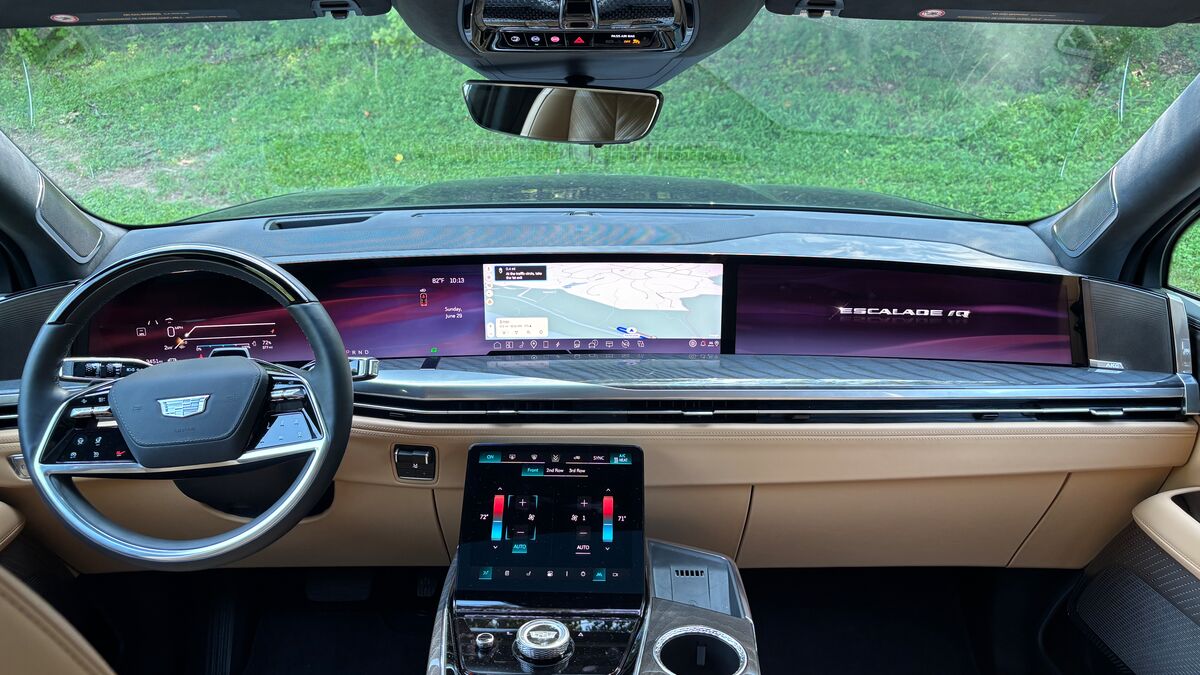- The average American new car buyer paid $48,841 last month.
- That’s just 1.5% higher than a year ago.
Tariffs and trade agreements dominate the headlines, but the price Americans pay for a new car is staying relatively stable this summer.
In July, the average buyer paid $48,841, down slightly from a revised $48,900 in June. That leaves prices 1.5% higher than a year ago. That small change comes even though automakers are paying 15% tariffs to import cars and parts to build them from most countries, and 25% to import them from the rest of North America.
Dealers and Factories Are Absorbing Most Tariff Costs
- Discounts made up 7.3% of the average sale.
If each car costs automakers more, why are they not costing buyers much more? Because automakers and dealers are combining to discount many sales.
Incentives made up 7.3% of the average transaction in July, up from 7% in June and in July of 2024. Industry analysts worry that increasing discounts aren’t sustainable. Many car companies have chosen to sell at a discount while the tariff policy was turbulent. As the United States signs more long-term trade deals locking in high tariff rates, automakers may be forced to pass on costs to shoppers.
Luxury Car Prices Rising Faster Than Mainstream
- Many luxury brands saw their prices rise quickly.
- Five mainstream brands saw their average transaction price fall compared to last July.
Luxury car buyers are paying the highest penalty. Cadillac, Land Rover, and Infiniti all posted double-digit increases compared to 2024. Price growth at Mercedes, Porsche, and Lincoln was also more than twice the industry average.
“In the face of rising prices, it is becoming more evident that the new-vehicle market is being supported by pent-up demand driven largely by high-net-worth households,” says Cox Automotive Executive Analyst Erin Keating. Cox Automotive owns Kelley Blue Book.
Meanwhile, five mainstream brands saw lower transaction prices than last July. Jeep saw its average sale price decline by 12%, but the company has launched an effort to lower its prices and recover its appeal to non-luxury buyers.
EV Prices Falling as End of Tax Credit Approaches
- A $7,500 federal discount on electric vehicles (EVs) goes away this fall.
- Dealers are discounting EVs heavily as the deadline approaches.
The federal government offers a $7,500 tax credit on the purchase of many new electric vehicles (EVs). But that credit will expire after September, thanks to recent legislation pushed by President Donald Trump and his administration.
With the end in sight, consumers are rushing out to take advantage of the discount while they can.
In July, the average transaction price for a new EV was $55,689, down by 2.2% from June. New EV prices were lower year over year by 4.2% in July.
EV incentives soared in July, as automakers and dealers worked to move inventory prior to the decline in government support. The average incentive package for an EV in July was 17.5% of the sale price, a record in the modern era of EV sales and higher year over year by more than 40%.
“The urgency created by the administration’s decision to sunset government-backed, IRA-era EV incentives was expected to create serious demand for EVs in the short term. If last month is any measure: Mission accomplished. July sales were near an all-time monthly record. At this pace, Q3 will be the best ever and then some, as buyers jump in before the big incentives dry up,” says Cox Automotive Senior Analyst Stephanie Valdez Streaty.







